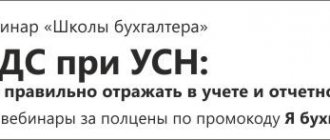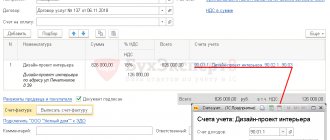VAT rate 0: transport services
The procedure for calculating value added tax is established by Chapter. Tax Code of the Russian Federation. In paragraph 1 of Art. 164 of the Tax Code of the Russian Federation determines that the following types of transport transportation are taxed at a rate of 0 percent:
- International transportation of goods using river, sea and mixed types of vessels, aircraft, as well as railway and road transport, if the point of departure or destination is located outside Russian territory;
- Domestic transportation provided that the point of departure or destination is in Crimea or Sevastopol, as well as in the Kaliningrad region;
- Transportation of goods that were previously placed under the customs transit procedure;
- Transportation of petroleum products, oil and gas by pipeline on the territory of the Russian Federation or beyond its borders;
- Transportation of passengers and baggage in the following situations:
- When the point of departure or destination is outside Russian territory;
- Railway transport in suburban traffic across Russia;
- Railway transport on long-distance trains within Russian territory;
- By air, if the point of departure or destination is located in Crimea, Sevastopol, in the Kaliningrad region or in the territory of the Far Eastern Federal District, as well as outside the territory of Moscow and the Moscow region.
If one of the above situations occurs, the carrier issues an invoice with a 0% VAT rate.
Next, you will need to confirm the validity of applying this tax rate to the Federal Tax Service inspection within 180 calendar days from the date of affixing the customs mark in the shipping documents (clause 9 of Article 165 of the Tax Code of the Russian Federation). If the taxpayer fails to meet the 180-day deadline, he will have to pay VAT in the amount of 20% of the cost of transportation.
If the full package of documents has not been collected by the next deadline for submitting VAT reports and, as a result, the 0% rate during this period is not confirmed (but the 180-day period has not been violated), a discrepancy will arise between the income tax and VAT returns. Upon receipt of a request from the tax office, you will need to disclose the reasons for the identified differences.
In the package of supporting documents in accordance with Art. 165 of the Tax Code of the Russian Federation includes:
- Copy of the contract;
- Copies of all shipping and transport documents. In particular, CMR, which is an analogue of the Russian TTN and contains information about the cargo, route and vehicle;
- A copy of the customs declaration with marks from the customs authorities.
Passenger transportation services are not subject to VAT
Russian President Vladimir Putin signed a law exempting from VAT services for the transportation of passengers by road and urban ground transport provided under government contracts. The text of the Federal Law from the Law contains additions to the article of the Tax Code of the Russian Federation. The amendments establish that services for the regular transportation of passengers and luggage by land transport at regulated tariffs on the basis of state or municipal contracts are exempt from VAT.
The article did not provide for exemption from VAT for services for the transportation of passengers and luggage on the basis of a state or municipal contract. At the same time, the law on regular transportation of passengers by land transport from the New Law corrects this situation and makes it clear that specified work and services carried out on the basis of state or municipal contracts are exempt from VAT.
We use cookies to analyze traffic, tailor content and advertising to you and enable you to share on social media. If you continue to use the site we will assume that you are happy with it. Pyatov Articles by Professor Y. Sokolov Balance in the profession and in life Notes of an inadequate chief accountant Advice from Vera Khomichevskaya Customs payments Changes - Protection of personal data Taxation Self-employed professional income tax Tax administration Federal taxes and fees Regional taxes and fees Local taxes Special tax regimes Canceled taxes Treaties and settlements with employees Contracts Personnel registration Employment of foreign citizens Settlements with employees Reference information Insurance premiums Base for calculating insurance premiums Reporting on insurance premiums Checks and liability Insurance premium rates Payment of insurance premiums Environmental payments, reporting to Rosprirodnadzor Legal regulation of activities Free use.
Donation State registration Contractual liability, obligations Agreements with intermediaries Documentary execution Loans, credits Protection of consumer rights Purchase and sale, supply Licensing, certification, SRO Provision of services Relations with government agencies. Responsibility Relations with founders, corporate issues Contract work Dispute settlement, going to court, arbitration practice Rent.
Accounting ZEN subscribe to our channel. The law will come into force on January 1 of the year. Topics: exemption from VAT, amendments to the Tax Code of the Russian Federation, provision of services. Subscribe to comments. Send by mail. View the latest issue Buy the electronic version Subscribe Magazine archive Find out more. Do you support a tax amnesty for small businesses? Yes, I support it. It is necessary to free small businesses from accumulated tax arrears. No, I am against writing off anyone's tax debts.
I believe that if tax debts are written off, then everyone without exception will do so at once. Partner offers. Training for users of 1C products. Login Stay logged in Forgot your password? Login via social network account:. Registration A request to confirm registration will be sent to the e-mail specified in the form. Login min.
When does the 20% VAT rate apply on transport services?
In other cases, a VAT rate of 20% must be applied to transportation services (clause 3 of Article 164 of the Tax Code of the Russian Federation).
If a Russian company provides transport services to a foreign company that does not have a permanent representative office in the Russian Federation, and the point of departure and destination are located on the territory of Russia, VAT on transport services will be charged at a rate of 20% (clause 4.1, clause 1, article 148 of the Tax Code RF).
A Russian organization (IP) can also act as a VAT tax agent for a foreign company, which becomes the basis for paying tax at a rate of 20%. This situation occurs when transportation across the territory of Russia for a Russian customer is carried out by a foreign company that does not have a permanent representative office in the Russian Federation (Articles 24, 161 of the Tax Code of the Russian Federation).
The place of implementation of works (services) is determined in accordance with Art. 148 of the Tax Code of the Russian Federation and depends on the type of services provided (work performed), as well as other criteria established by this article.
In accordance with paragraphs. 4.1 clause 1 art. 148 of the Tax Code of the Russian Federation, the place of sale of transportation and (or) transportation services, as well as services (works) directly related to transportation and (or) transportation, is the territory of the Russian Federation, provided that these services are provided:
- Russian organizations or individual entrepreneurs, if the point of departure and (or) destination are located on the territory of the Russian Federation;
- foreign persons who are not registered with the tax authorities as taxpayers, if the points of departure and destination are located on the territory of the Russian Federation (with the exception of services for the transportation of passengers and luggage provided by foreign persons not through the permanent representative office of this foreign person). In this case, we are talking about foreign carriers who are not taxpayers of member states of the Customs Union.
The place of sale of services is also recognized as the territory of the Russian Federation, if vehicles under a charter agreement involving transportation (transportation) on these vehicles are provided by Russian organizations and individual entrepreneurs and the point of departure and (or) destination are located on the territory of Russia. In this case, vehicles are recognized as aircraft, sea vessels and inland navigation vessels used for the transportation of goods and (or) passengers by water (sea, river), air transport (second paragraph of clause 4.1, clause 1 of Article 148 of the Tax Code of the Russian Federation). The place of sale of services for the transportation of natural gas by pipeline is also recognized as the territory of the Russian Federation in cases provided for by international treaties of the Russian Federation.
The exception is services (work) directly related to the transportation and (or) transportation of goods placed under the customs procedure of customs transit when transporting goods from the place of arrival on the territory of the Russian Federation to the place of departure from the territory of the Russian Federation, and the services specified in paragraphs. 4.3 clause 1 art. 148 Tax Code of the Russian Federation.
According to paragraphs. 4.4 clause 1 art. 148 of the Tax Code of the Russian Federation, the territory of the Russian Federation is recognized as the place of sale of services for the transportation of goods by aircraft, which are provided by Russian air carriers and the point of departure and destination are outside the territory of the Russian Federation if, during transportation on the territory of the Russian Federation, an aircraft operated by these carriers lands and the place of arrival of goods to the territory of the Russian Federation coincides with the place of departure of goods from the territory of the Russian Federation.
In the case of provision of services for the transportation of goods by a foreign carrier not registered with the tax authorities of the Russian Federation, between points, one of which is located on the territory of the Russian Federation, and the other outside the territory of the Russian Federation, the territory of the Russian Federation is not recognized as the place of sale of these services (see letters Ministry of Finance of Russia dated 04/11/2011 N 03-07-08/108 and dated 12/03/2009 N 03-07-15/160). Also, the territory of the Russian Federation is not recognized as the place of sale of transportation services (transportation) and those directly related to it, if these services (work) are provided by a Russian organization, but the points of departure and destination are located outside the territory of the Russian Federation (see letters of the Ministry of Finance of Russia dated November 3, 2011 N 03-07-08/306, N 03-07-13/01-45).
Accordingly, if a Russian organization purchases from a foreign organization that is not registered with the Russian tax authorities, services for organizing the transportation of imported goods between points of departure and destination located on the territory of the Russian Federation, such services are subject to VAT, and the Russian organization is a tax agent obliged to calculate and pay value added tax to the budget of the Russian Federation (see letter of the Ministry of Finance of Russia dated October 18, 2013 N 03-07-08/43655).
Article 148 of the Tax Code of the Russian Federation does not contain a specific list of transportation services, as well as services (works) directly related to these operations. On the issue of classifying certain services (works) as transportation services (works), as well as services (works) related to transportation or transport, in particular in railway transport, the Federal Tax Service of Russia in a letter dated 06/04/2008 N ShS-6-3 / [email protected] recommends using the letter of the Ministry of Transport of Russia dated May 20, 2008 N SA-16/3729.
Attention
The procedure for collecting indirect taxes (including Russian VAT) when performing work, providing services between the member countries of the EAEU (Armenia, Belarus, Kazakhstan, Kyrgyzstan, Russia) is regulated by Section IV of the Protocol on the procedure for collecting indirect taxes and the mechanism for monitoring their payment when exporting and importing goods, performing work, providing services (Appendix No. 18 to the Treaty on the Eurasian Economic Union) (Astana, May 29, 2014).
When performing work or providing services in the EAEU states, the tax base, rates of indirect taxes, the procedure for their collection and tax benefits (exemption from taxation) are determined in accordance with the legislation of the member state, the territory of which is recognized as the place of implementation of work, services, unless otherwise established by section IV Protocol (clause 28 of the Protocol).
The place of implementation of works and services in the EAEU is determined in accordance with the Protocol. So, according to paragraphs. 5, paragraph 29 of the Protocol, the place of implementation of works and services is recognized as the territory of a Member State, if the work is performed or services are provided by the taxpayer of this Member State, unless otherwise provided for in subparagraphs 1 - 4, paragraph 29 of the Protocol. Transportation services (transportation) are not mentioned in subparagraphs 1 - 4 of clause 29 of the Protocol, therefore the place of their sale in the EAEU is always determined by the location of the seller (see also letters of the Ministry of Finance of Russia dated 02.09.2015 N 03-07-13/1/ 50600, dated 03/19/2015 N 03-07-13/1/15028).
Provisions of paragraphs. 5 clause 29 of the Protocol also apply when renting, leasing and providing vehicles for use on other grounds (see also letters of the Federal Tax Service of Russia dated 06/08/2017 N SD-4-3/ [email protected] , Ministry of Finance of Russia dated 05/30/2017 N 03-07-13/1/33118).
We note that based on paragraphs. 5, paragraph 29 of the Protocol, the place of implementation of unloading and loading operations is also determined by the location of the service provider (see letter of the Ministry of Finance of Russia dated June 23, 2016 N 03-07-13/1/36620).
Passenger transportation services under government contracts are not subject to VAT
Students who successfully complete the program are issued certificates of the established form. Students who successfully complete the program are issued certificates of the established form. Document review. Question: Please give a written answer on the issue of application of the legislation of the Russian Federation on taxes and fees in relation to the following situation:. The list of transactions that are not subject to taxation and exempt from taxation is established by an article of the Tax Code of the Russian Federation, hereinafter referred to as the Code. According to subparagraph 7 of paragraph 2 of Article of the Code, services for the transportation of passengers by public urban passenger transport, with the exception of taxis, including minibuses, are not subject to VAT. For the purposes of this article, services for the transportation of passengers by public urban passenger transport include services for the transportation of passengers under uniform conditions for the transportation of passengers at uniform fares established by local governments, including the provision of all travel benefits approved in the prescribed manner. From this document it follows that regulated transportation is divided into two types:. These are regular transportation carried out using tariffs established by state authorities of the constituent entities of the Russian Federation or local governments, and the provision of all travel benefits approved in a certain manner;
The Ministry of Finance spoke about the procedure for accounting for passenger transportation for VAT purposes
In accordance with paragraphs. For the purposes of Art. The operations listed in this article are not subject to taxation and are exempt from taxation if the taxpayers carrying out these operations have the appropriate licenses to carry out activities licensed in accordance with the legislation of the Russian Federation, paragraph 1 of Art. The general conditions of transportation are determined by transport charters and codes, other laws and the rules issued in accordance with them, paragraph 6.
Read all the materials () on the topic “Exemption from VAT: when to use (except for taxis, including minibuses).










